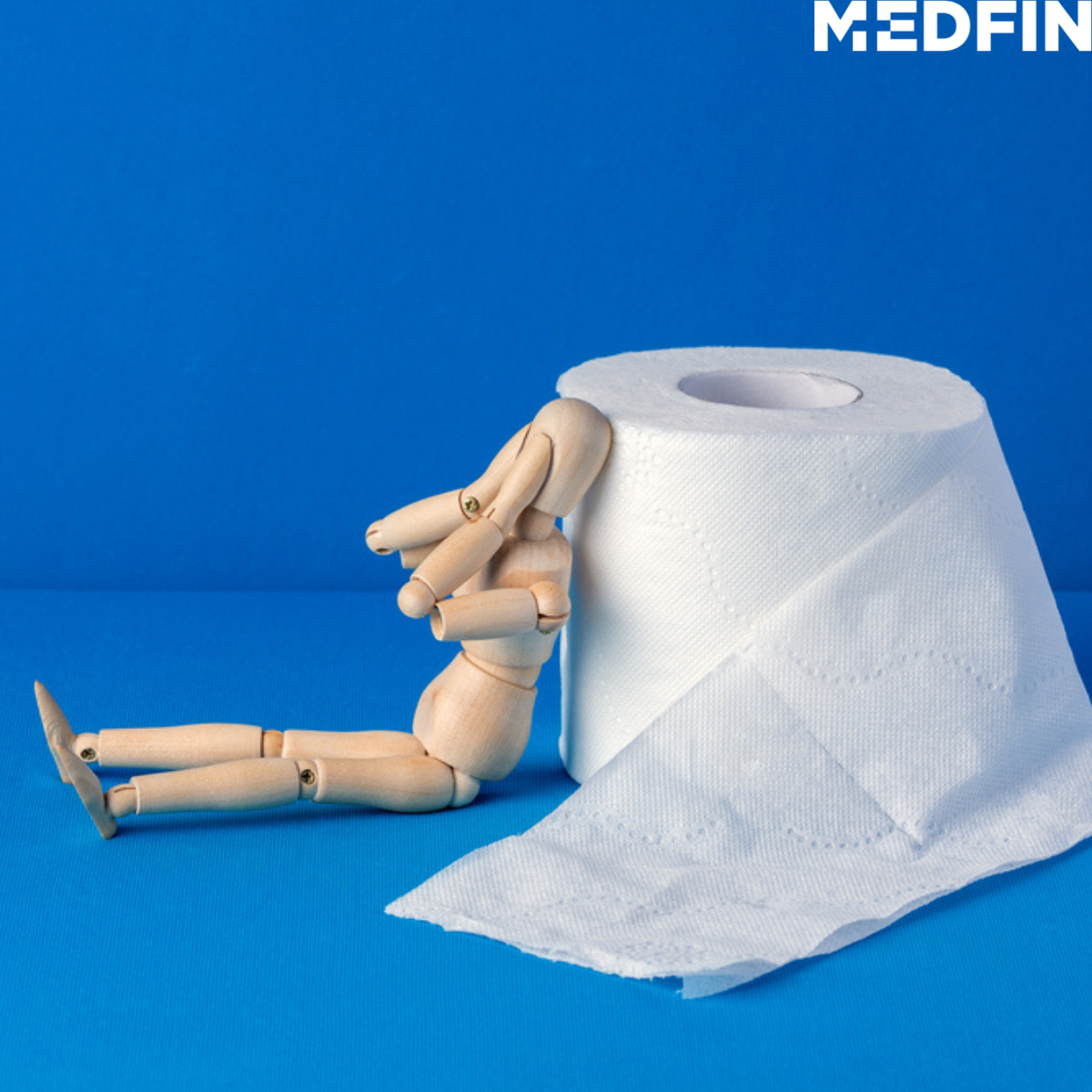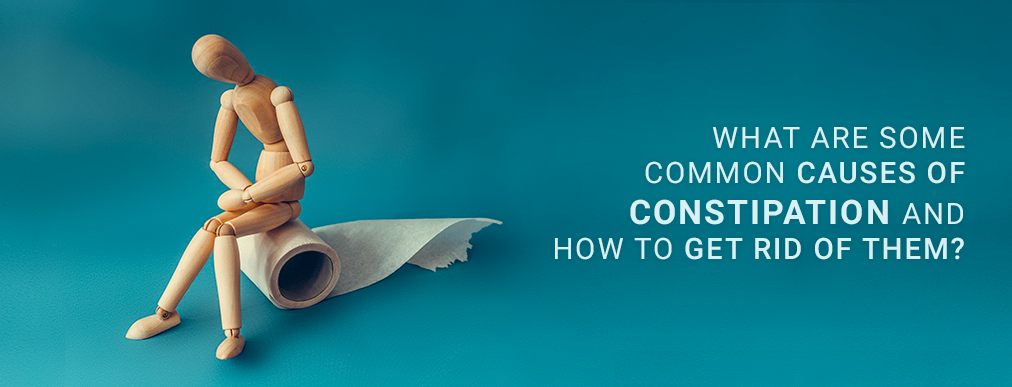Anal Fissures / Anal Fistula / Health / Lifestyle / Piles (Hemorrhoids)
Constipation – Why You Should Not Ignore It?

by admin
23rd May 2022
5 minutes read
What is the meaning of constipation?
Constipation, in its true definition, includes the following symptoms:

When can constipation become a problem?
Over time, if you experience constipation regularly, you’ll be at risk for various complications. Some of these risks are:
Hemorrhoids or Piles
When going through constipation, you are most likely to experience difficulty passing stool. This forces you to strain during bowel movements, leading to swelling in the veins of the anus and lower rectum. It is these swollen veins that are known as piles or hemorrhoids.
So what can hemorrhoids lead to?
Hemorrhoids can lead to:
- Itching and irritation around the anus
- Pain and discomfort around the anus
- Swelling around the anus
- Bleeding during bowel movements

Anal Fissure
An anal fissure refers to a small tear in the tissue lining the anus. Constipation causes the anal fissure to tear when passing hard stool or when straining during bowel movements.
Symptoms of anal fissures are:
- A visible tear around the anus
- Pain during/after a bowel movement
- Bright red blood on the stool or toilet paper after a bowel movement
- A bump or skin tag near the anal fissure’s tear
It is important to treat chronic constipation to prevent as well as treat anal fissures. Severity in an anal fissure can lead to the need to perform surgery.
Continue reading if you want answers to questions such as how to get rid of constipation fast at home and how to remove constipation naturally.
Rectal Prolapse
Chronic constipation can, over time, cause rectal prolapse. Rectal prolapse occurs when a part of the large intestine falls from its position. This can lead to part of the rectum slipping out of the anus.
Rectal prolapse comes with the following signs:
- Feeling of fullness in bowels
- Feeling of not being able to empty the bowels completely
- Pain, itching and irritation around the anus
- Feces, mucus or blood leaking from the anus
- Red tissue protruding from the anus
In many cases, surgery might be needed to treat rectal prolapse.
Note: Can constipation cause fever?
They can both occur at the same time, not necessarily meaning that fever is due to constipation. Also, constipation cannot be the direct cause of fever.
Fecal Impaction
Chronic constipation can also cause fecal impaction, where a hard mass of stool gets stuck in the colon. This comes with several difficult symptoms to suffer from, such as:
- Pain, cramps or discomfort in the abdomen, especially after eating
- Difficulty passing stool
- Loss of appetite
- Abdominal swelling or bloating
- Nausea, vomiting
- Headache
- Passage of liquid stool
Without proper treatment, fecal impaction can lead to tears in the colon wall, making it a life-threatening condition.
It is thus highly essential to prevent constipation.
How to get rid of Constipation?

Depending upon the severity of the situation, there are different ways to prevent constipation.
One can make sure practicing healthy habits in order to prevent and treat constipation. These include eating fiber-rich foods, staying well-hydrated, doing regular exercise, reducing emotional stress and not delaying going to the washroom when feeling the urge.
Your doctor may give you
- over-the-counter stool softeners
- fiber supplements
- over-the-counter oral laxatives, enemas or rectal suppositories
Bowel training is yet another answer to how to overcome the constipation problems. If all of this fails to work, then you might be prescribed some medication. Also, the doctor can help diagnose if the cause behind constipation is some underlying medical condition.
Note: Is banana good for constipation?
While unripened bananas can be a cause, ripened bananas can be a relief from constipation. The latter ones are rich in soluble fiber and help push waste through the bowels.
Takeaway
If left untreated, constipation can lead to serious complications in the near future. Treatments are available, which should be taken under the advice of a doctor.
Frequently Asked Questions on Constipation
1. Does it matter if you do not have a bowel movement every day?
It is not a problem until the bowel movements are soft and effortless and leave you with a feeling that everything has been eliminated. In fact, a daily bowel movement can be problematic when the stools are small, hard and difficult to pass.
2. How to take isabgol for constipation?
You can add two tablespoons of isabgol to a glass of warm milk every night before going to bed. This you can continue for a few weeks.
3. What medications can cause constipation?
Antidepressants, antacids, pain relievers and cholesterol medications can be the causative factors. As long as you are consuming any of these medications, you will also require additional treatment for healthy movements.
4. How to avoid constipation during pregnancy?
This you can do by drinking plenty of fluids, including physical activity in your daily routine and also consuming a fiber-rich diet. Stool softeners can be taken under the guidance of your doctor.
5. Who is at a higher risk of getting constipation?
Females, pregnant women and people over 65 years of age are at a higher risk of getting constipation. Also, those who do not engage in enough physical activity or keep themselves confined to bed, that can be due to some physical disability, carry the same risk.
We at Medfin , the Surgery expert team, offer you access to latest and advanced treatment for elective surgeries at most affordable costs. Our Personal Medfin assistants answer all your concerns related to surgery and ensure that your needs are met in your entire medical journey.
Useful Links:
CATEGORIES
- ACL Reconstruction
- Anal Fissures
- Anal Fistula
- Appendicitis
- ASK A DOCTOR
- Benign Prostatic Hyperplasia
- Breast Lump Excision
- Cataract
- Circumcision
- Conditions & Diseases
- Cosmetology
- Covid-19
- Cure
- Endocrinology
- ENGLISH VIDEOS
- Eye Care
- Gallstones
- General Surgeries
- Government Schemes
- Gynaecology
- Gynecomastia
- Gynecomastia
- Health
- Health Insurance
- Hernia
- hindi
- Hip Arthoscopy
- Hip Replacement
- Hip Replacement Surgery
- Hydrocele
- Kannada
- Kidney Stones
- Knee Arthroscopic
- Laparoscopic
- LASER
- Latest Treatments
- Lifestyle
- Liposuction
- Medfin Stories
- Medicine
- Nephrology
- Ophthalmology
- Orthopaedic
- Paraphimosis
- Patient Testimonials
- PCL Reconstruction
- Phimosis
- Piles (Hemorrhoids)
- Pilonidal Sinus
- Proctology
- Prostate Artery Embolization
- Rhinoplasty
- Second Opinion
- Total Knee Replacement
- Uncategorised
- Urology
- uterine artery embolization
- Uterine Fibroids
- Varicocele
- Varicose Veins
- Vascular
- VIDEOS






